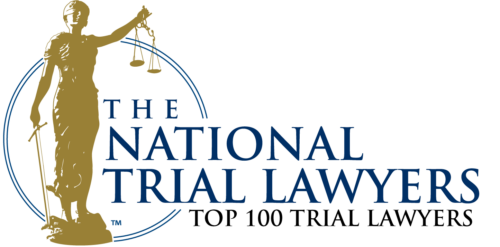If you have ever eaten at a restaurant and later felt severe discomfort, it is possible you experienced symptoms of food poisoning. Signs and symptoms of food poisoning can vary from person to person and can even depend on the type of food a person consumed. Food poisoning cases should be handled swiftly because some evidence you may need for your case obviously cannot be preserved for trial. If you or a family member was a victim of food poisoning, you should consult with an experienced Philadelphia personal injury lawyer. At The Reiff Law Firm, we will work tirelessly to help you pursue your food poisoning claim. Our restaurant injury lawyers are here to explain whether you can sue a restaurant for food poisoning in Pennsylvania.
Types of Food Poisoning You Can Sue For in PA
Food poisoning is an illness caused by consuming food that is contaminated with infectious organisms like bacteria, viruses, and parasites. These contaminants can affect food during the production process or because it was cooked incorrectly. The type of food poisoning a person can contract will usually depend on the kind of food they consumed.
Campylobacteriosis is one type of foodborne illness that is commonly caused by eating meat and poultry contaminated with animal feces. According to the Centers for Disease Control and Prevention (CDC), in the United States, campylobacteriosis affects approximately 1.3 million people per year. The signs and symptoms of campylobacteriosis include severe diarrhea, fevers, abdominal cramps, and vomiting. While this infection can clear up within two to five days, individuals with weakened immune systems face a higher risk of the infection reaching their bloodstream and causing a fatal illness. Fatal cases of food poisoning can also open a restaurant to a wrongful death lawsuit.
Hepatitis A is another illness that can be contracted by consuming raw produce and shellfish that was in contact with contaminated water. This illness can also be contracted if a food-handler afflicted with Hepatitis A negligently prepares your food. Hepatitis A is a virus that causes a person’s liver to become inflamed; it is also highly contagious. Symptoms of Hepatitis A include jaundice, fevers, dark urine, vomiting, and joint pain. These symptoms and others can last for a few weeks or several months. Extreme cases of Hepatitis A can even cause death.
Giardia lamblia is a diarrheal illness commonly caused by drinking water contaminated with feces. The symptoms of giardiasis may not appear until a week later, making it more difficult for an individual to prove a restaurant was responsible for their illness.
There are many other types of foodborne illnesses that are not listed above, such as salmonella and E. coli. If you need to know more about the various types of food poisoning, you should speak with an experienced Delaware County personal injury lawyer.
The Food Recall Process in Pennsylvania
Typically, companies that produce food will recall their products from the market if they are improperly labeled or if the food presents a health hazard to consumers. In some cases, the food might have been contaminated or is the root cause of a foodborne illness.
Voluntary recalls occur when a manufacturer or distributor recalls its food or products based on knowledge or suspicion of a hazard. The United States Food and Drug Administration (FDA) also has the authority to require a recall. This power is granted through the Food Safety Modernization Act.
Typically, the FDA only exercises this authority if a manufacturer or distributor refuses to comply with a request from the FDA to voluntarily recall a specific product. Prior to the law, the FDA was required to rely on the company’s decision, even if there was evidence of contamination or danger.
Under the act, the FDA also has the authority to suspend the registration of any facility if there is evidence that the food was processed, packaged, or otherwise handled in such a way that presents a serious threat to consumer’s health. When a registration is suspended, a company is no longer legally permitted to sell food in the U.S.
When a food product is recalled in the United States, including Pennsylvania, it is classified in one of three ways.
Class I
A recall will be classified as Class I if the food product is dangerous or defective. The predictable result of consumption or distribution would be serious health problems and possibly death. For example, food that is recalled because it contains a mislabeled allergen would be considered Class I.
Class II
Food products that are likely to cause a temporary health issue or only pose a slight threat are classified as Class II.
Class III
When a food product violates federal label regulations or does not adhere to manufacturing laws, it could be labeled Class III. To fall under this classification, the food product is unlikely to result in any negative health problems. For instance, a lack of English on the label could result in a Class III recall.
Legal Protections for Victims of Food Recalls in Pennsylvania
When a food manufacturer or distributor discovers that their product is contaminated or defective, it could be recalled. However, it is possible that before the contamination was discovered, people were harmed, suffering illness, injury, or death.
Food contamination falls under a body of complex law known as product liability. When we buy a product, we expect it to serve its intended purpose. There is a reasonable expectation that the food we buy does not present a health hazard. However, while you could hold a food manufacturer financially liable for your injury, it is not a simple task.
Major food producers and manufacturers will investigate any claim made against them. They will also have lawyers working to combat any liability claim. This is one reason why it is important to contact our Pennsylvania food recall lawyers if you believe you have been injured by a contaminated or mislabeled food product.
Whether you want to negotiate with the manufacturer or file a personal lawsuit, you should have competent legal representation so that you understand your rights and options. In most cases, a personal injury claim will not only provide compensation to ease the financial burdens associated with the injury, but it could also prevent others from suffering the same fate.
Steps To Take if You Were Harmed by Recalled Food in Pennsylvania
Product liability claims for recalled food products are challenging. Often, the symptoms associated with eating contained food could be attributed to an illness or other disease. To help our Pennsylvania product liability lawyers build a case, there are some things you should consider.
Save the defective food and packaging. Hopefully, the packaging includes the name and address of the manufacturer and an identification or batch number. You should also save the receipt, so our firm has the date you purchased the product and the store where you bought it.
Do not contaminate the food further. Be sure to save it in a place where it will remain untouched and unchanged. If anyone witnessed the purchase or your illness, be sure to gather their names and contact information.
You should not talk to anyone about the incident without consulting with our Pennsylvania personal injury lawyers first. Do not give any written statements or sign any documents that might release the store or manufacturer from liability.
How to Prepare for a Food Poisoning Lawsuit
Food poisoning is an actionable offense in Pennsylvania, and a restaurant can be liable for your injuries if you can prove they were the cause of your foodborne illness. The CDC estimates that 48 million people annually in the U.S. contract some form of food poisoning, and approximately 128,000 of those people must be hospitalized. These stats also show that about 3,000 people will die from food poisoning each year. Therefore, it is important to recognize the signs and symptoms of food poisoning so that you may seek necessary medical treatment and properly preserve your lawsuit.
If you eat food at a restaurant and begin to feel ill, you should seek medical attention immediately. If possible, you should also take steps to gather evidence that will show that your food was contaminated.
One of the first things you should do is document the time and date your symptoms began. Keep all receipts from the establishment that prove when you were there and what food you ordered. If you still have leftovers from the restaurant, keep it as evidence. You may be able to send the food to a lab so that they can examine it for contaminants. If the tests come back positive, you have a solid piece of evidence to aid your case.
Next, you should consult with your doctor to determine whether your illness was caused by negligently prepared food. Ruling out other illnesses is important so that the restaurant cannot diminish your claim by alleging you received the foodborne illness from some other source. It may also help to speak with other diners who were present at the restaurant the same day you became sick. It is possible others may have contracted the same illness you did.
Additionally, you should check for any food recalls in your area. The restaurant you dined at may have negligently used ingredients that were recently recalled when preparing your meal. You may want to consider speaking to a objects in food injury lawyer if you have been injured by foreign objects in your food.
Work with Our Personal Injury Attorneys to Build Your Food Poisoning Claim
If you or a family member contracted a foodborne illness at a restaurant, you should speak with an experienced Chester County personal injury attorney. With over 40 years of personal injury experience, the attorneys at The Reiff Law Firm are ready to help you discover evidence and form strategies for your food poisoning lawsuit. To schedule a free consultation, call us at (215) 709-6940.
Related Posts
- What Happens if a Charter Bus Hits Your Car and You are Injured in the Accident?
- Who is Liable for a Car Accident Caused by a Bald Tire in Philadelphia?
- What to Do if You Slip and Fall in a Store in Philadelphia
- Your Personal Injury Lawsuit Can Be Stopped in its Tracks by a Liability Waiver
- Can I Sue After an Accident Caused by Poor Road Design or Maintenance in Pennsylvania?















